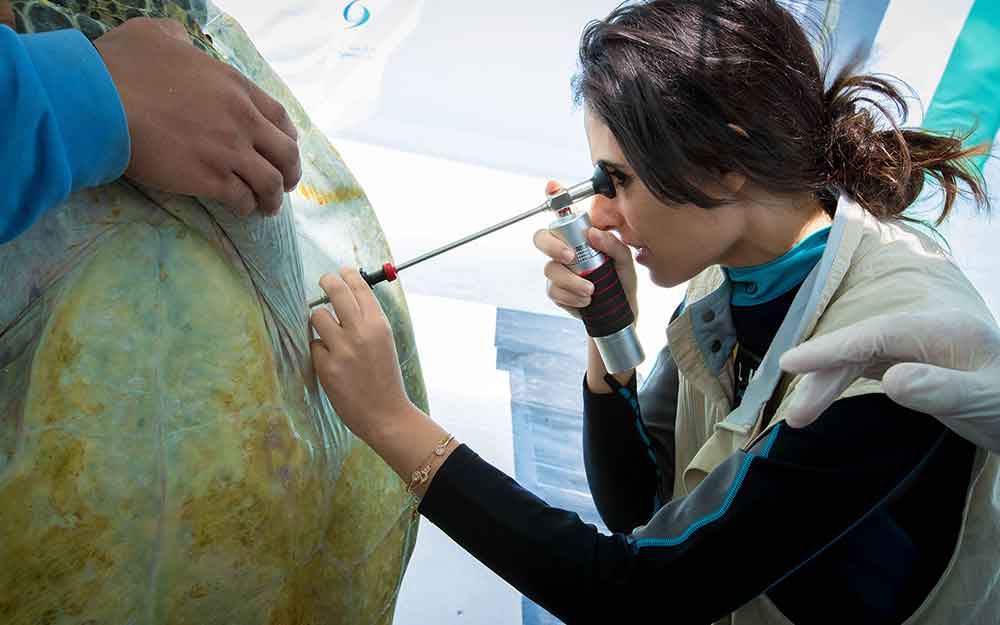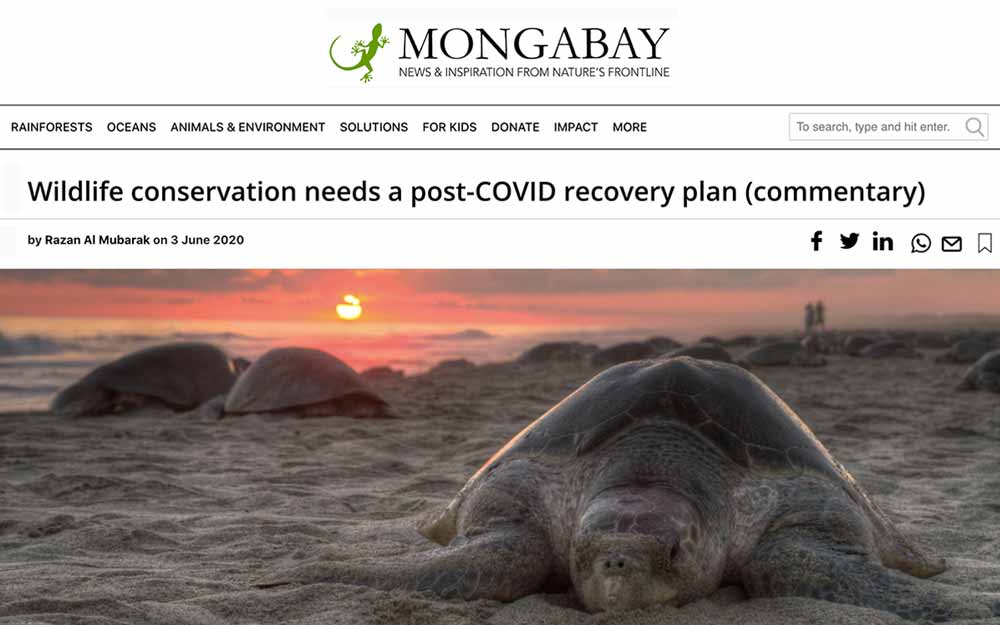Razan Al Mubarak was interviewed by Mongabay editor-in-chief Rhett Butler as part of the news outlet’s Conservation Players. The series explores nature and sustainability issues and trends with notable conservation leaders from around the world such as The Nature Conservancy’s Jennifer Morris, WWF Africa’s Alice Ruhweza, and Jinfeng Zhou of the China Biodiversity Conservation and Green Development Foundation.
In the interview. Ms Al Mubarak discusses a range of issues including the impact of COVID-19 on conservation, the role of technology in protecting biodiversity, and her vision for leading IUCN.
Asked why she is optimistic about the future of conservation, Ms Al Mubarak said:
“I am an optimist because we know that conservation is effective. And every day we learn more about what we can do to protect nature.
There is no doubt that nature is being challenged, just by our sheer population alone. But despite that, nature is not dead; it just needs our help.
When I am overwhelmed by the enormity of the challenge we face, I like to think of it this way: there are 7.8 billion people on this planet, and we have 10 billion species. If just one individual out of 10 is empowered to protect a potentially endangered species, we have addressed the problem. So be interested, be curious, and use that energy for good. There are incredible individuals that are protecting nature. Get in touch with them and be part of something that is very fulfilling.”

